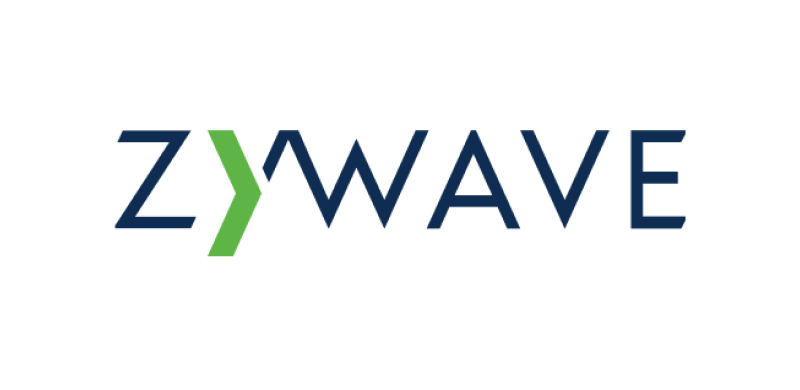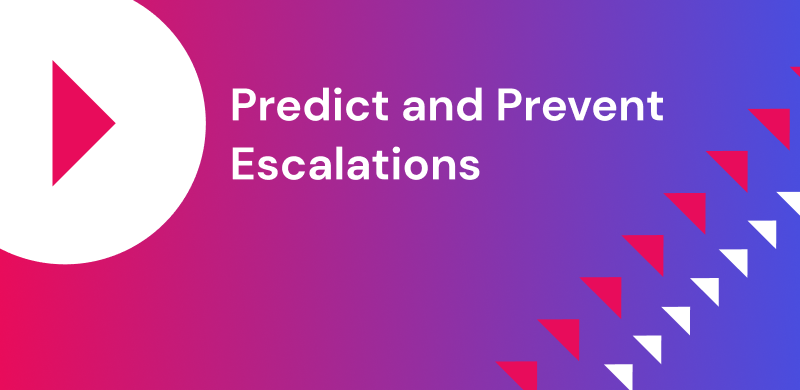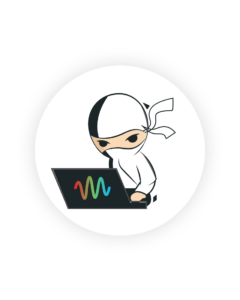
Apr 18, 2023
Webinar Recap: 20 Minutes, Twice a Day to Reduce Escalations
Escalation Managementescalation preventionEscalation prediction and preventionsupport ticket escalations
A common refrain we hear from support teams is that they’re constantly forced into a reactive posture due to support case escalations. Those escalations take over, require more time from more resources, cost more, risk more churn, and push other cases to the back burner. But, instead of searching for ways to streamline escalation processes, why not just reduce the number of escalations in the first place?
It’s not as difficult as you might think. And, you can do it with just a tiny bit of daily effort…and some AI help.
We explain how in a recent webinar and product demonstration: “20 Minutes, Twice a Day: Your RX for Escalation Reduction.” Or, read on for more insights.
Escalations Cost Too Much
Escalations are, obviously, something you want to avoid. If cases can be resolved earlier in the support cycle, customers will be happier and there is no need to involve account executives, the customer’s executives, your executives, engineering, and other expensive resources, not to mention the time and effort of your customer support reps.
But, escalations do bring those expensive resources into the support cycle and drastically increase support costs — many times the cost of a typical case. Escalations also add frustration for support reps because it takes them away from their backlog of cases (and progress towards goals), forces them to deal with customer anger, and leads to burnout. Same with other internal staff — engineers, executives, product managers, subject matter experts, etc. — who are pulled away from other tasks to deal with escalation fire drills. Worse yet, the time devoted by those resources is rarely tracked, so the costs can’t be fully quantified.
The more impactful cost, however, is from customer dissatisfaction and churn. Nearly every organization (96%) points to the support experience as an important component of their loyalty to a vendor. In other words, reducing escalations has a wide ranging impact on your organization, from support rep bandwidth to corporate revenue growth.
Proactive Preventative Medicine for Escalation Management
You can probably list off some anecdotal commonalities across your escalated cases: product or use case keywords mentioned by customers, negative sentiment that was missed earlier in the support cycle, or confusion or misinterpretation by the customer or the support rep. It’s easy to point to the cause after the fact, but difficult to recognize the signals in the heat of the moment.
Artificial intelligence (AI) helps you take a more proactive stance by constantly scanning support cases for these and other signals. AI can recognize the more technical cases that will eventually require escalation, and then flag those for escalation sooner for faster resolution and increased customer satisfaction. AI can use natural language processing (NLP) to assign sentiment scores to active cases, elevating those where the customer is showing signs of increased frustration, negative sentiment, or known product challenges (or inappropriately directing anger at your service reps). AI can also instantly capture valuable data across any number of cases to provide insights on time spent, resources involved, and more so you can quantify the cost of escalations and the value of eventual improvements and reductions.
For you, AI streamlines the escalation reduction effort into a simple four-step workflow:
- Take action on cases flagged as having negative signals from sentiment, confusion, and other information intelligently recognized by NLP.
- Take action on cases likely to be escalated based on patterns, keywords, and other information from your historic case data.
- Take action on case backlogs to avoid escalations by prioritizing those based on specific criteria AI can help you identify.
- Take action on the most pressing cases of the day, each day, via alerts and list views configurable to meet your specific needs.
AI moves you from a reactive to proactive posture on escalations because it’s constantly scanning cases, flagging those at risk of escalation, pushing others to faster escalation, and reducing the overall cost of support. This AI-powered early warning system is always working, you just need to monitor the results for 20 minutes, twice a day.
Watch the Webinar for More Escalation Medicine
Using AI to capture, highlight, and quantify escalation data, and then taking 20 minutes, twice a day, to review the insights can put you on a proactive path to reducing the negative impacts escalations have on your business. Here’s what we’ve been able to help SupportLogic customers accomplish:
- Up to 50% reduction in escalation rate in just 3 months
- Up to 1 hour per day in increased productivity for support managers
- Improved CSAT scores
See for yourself how it’s done. Watch “20 Minutes, Twice a Day: Your RX for Escalation Reduction” for more details on how escalations hurt your business and how AI can help you take a more proactive approach to escalations.
You’ll also learn more about the four-step workflow for AI-powered escalation reduction, and see a quick, ten-minute demonstration of SupportLogic in escalation-reducing action:
Don’t miss out
Want the latest B2B Support, AI and ML blogs delivered straight to your inbox?





